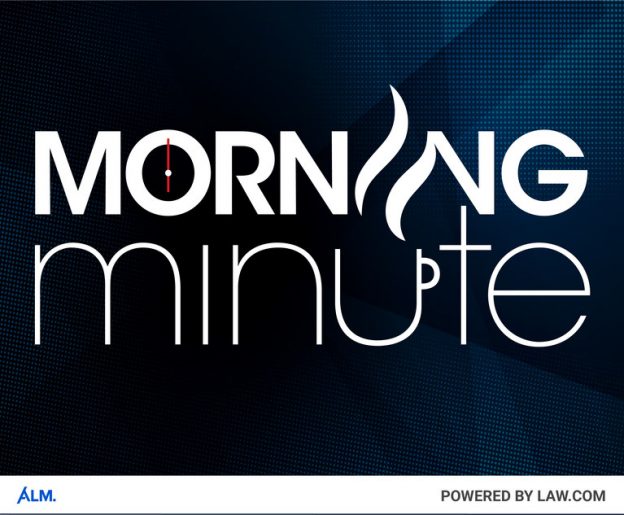What Big Firms Get Wrong About Small Markets: The Morning Minute
The news and analysis you need to start your day.
May 26, 2022 at 06:00 AM
5 minute read

Want to get this daily news briefing by email? Here's the sign-up.
WHAT WE'RE WATCHING
MISUNDERSTOOD MARKETS - Growth-minded firms have been moving into emerging markets at a rapid clip, driven by client demand and/or the lure of work from expanding industries. The lower overhead also offers opportunities to firms and clients alike to maximize the value they receive from work done in emerging markets, even after the pandemic has shifted norms around where lawyers work and how they're paid. Sweet! That is, if the firms understand what they're getting into it. As industry watcher Hugh Simons told Law.com's Brenda Sapino Jeffreys, that's a big "if." "In order to overpay the partners in the little market, you have to underpay in the bigger markets. That's not a sustainable thing to do. Most firm compensation systems can't cope with it. That's the critical issue. That's the one that goes wrong," Simons said. Another thing that firms misunderstand about smaller offices is that they tend to go through peaks and valleys in terms of associates' billability. It can be feast or famine, Simons said, as partners in the smaller offices provide local associates with work, but lawyers elsewhere may not do so. "That just kills the economics. That more than offsets any reductions you get in terms of lower associate salaries or lower overhead," he said.
NO WONDER - Transparency, what a concept! Hogan Lovells garnered a ton of attention over the past week for doing something exceedingly rare in Big Law: being upfront about expectations. Law.com International reported that CEO Miguel Zaldivar sent a memo to all of the firm's lawyers, giving guidance on what many of its partners and junior lawyers interpreted as an hours target required to make the partnership. Part of the memo, titled "Being a partner at Hogan Lovells," said: "As we look across the partnership, we see that success typically means an 'all in' commitment on your part (for those who work full time) in the range of 2,400 hours per year." In the latest edition of our Law.com Trendspotter column, we examine how increased transparency around the partnership track could motivate some young attorneys and discourage others—and why the latter might not actually be such a bad thing. I'm interested to hear from you: Should law firms be explicit about the requirements for making partner? Let me know at [email protected].
WHO GOT THE WORK?℠ - Sidley Austin and Brooks, Pierce, McLendon, Humphrey & Leonard have stepped in to defend Intercontinental Capital Group in a pending lawsuit brought on behalf of more than 40 former employees challenging the enforceability of employment agreements. The suit was filed April 6 in North Carolina Western District Court by Constangy, Brooks, Smith & Prophete and Troutman Pepper Hamilton Sanders on behalf of the defendants' former workers and Movement Mortgage, which now employs the individual plaintiffs. The case, assigned to U.S. District Judge Robert J. Conrad Jr., is 3:22-cv-00147, Movement Mortgage LLC et al v. Intercontinental Capital Group, Inc. >> Read the filing on Law.com Radar and check out the most recent edition of Law.com's Who Got the Work?℠ column to find out which law firms and lawyers are being brought in to handle key cases and close major deals for their clients.
PET PROJECT - Clayton, Dubilier & Rice and TPG Capital have agreed to acquire animal health product provider Covetrus for approximately $4 billion. The transaction, announced May 25, is expected to close in the second half of 2022. Clayton Dubilier and TPG are advised by Ropes & Gray and Debevoise & Plimpton. The Debevoise & Plimpton team is led by partners Paul Bird, Andrew Bab and Spencer Gilbert. Covetrus, which is based in Portland, Maine, is represented by a Weil, Gotshal & Manges team. Stay up on the latest deals and litigation with the new Law.com Radar.
EDITOR'S PICKS
This content has been archived. It is available through our partners, LexisNexis® and Bloomberg Law.
To view this content, please continue to their sites.
Not a Lexis Subscriber?
Subscribe Now
Not a Bloomberg Law Subscriber?
Subscribe Now
NOT FOR REPRINT
© 2025 ALM Global, LLC, All Rights Reserved. Request academic re-use from www.copyright.com. All other uses, submit a request to [email protected]. For more information visit Asset & Logo Licensing.
You Might Like
View All
Does Your Corporate Compliance Program Reasonably Prevent Fraud? New UK Guidance Demands It
11 minute read

KPMG Wants to Provide Legal Services in the US. Now All Eyes Are on Their Big Four Peers

Law Firms Mentioned
Trending Stories
Who Got The Work
J. Brugh Lower of Gibbons has entered an appearance for industrial equipment supplier Devco Corporation in a pending trademark infringement lawsuit. The suit, accusing the defendant of selling knock-off Graco products, was filed Dec. 18 in New Jersey District Court by Rivkin Radler on behalf of Graco Inc. and Graco Minnesota. The case, assigned to U.S. District Judge Zahid N. Quraishi, is 3:24-cv-11294, Graco Inc. et al v. Devco Corporation.
Who Got The Work
Rebecca Maller-Stein and Kent A. Yalowitz of Arnold & Porter Kaye Scholer have entered their appearances for Hanaco Venture Capital and its executives, Lior Prosor and David Frankel, in a pending securities lawsuit. The action, filed on Dec. 24 in New York Southern District Court by Zell, Aron & Co. on behalf of Goldeneye Advisors, accuses the defendants of negligently and fraudulently managing the plaintiff's $1 million investment. The case, assigned to U.S. District Judge Vernon S. Broderick, is 1:24-cv-09918, Goldeneye Advisors, LLC v. Hanaco Venture Capital, Ltd. et al.
Who Got The Work
Attorneys from A&O Shearman has stepped in as defense counsel for Toronto-Dominion Bank and other defendants in a pending securities class action. The suit, filed Dec. 11 in New York Southern District Court by Bleichmar Fonti & Auld, accuses the defendants of concealing the bank's 'pervasive' deficiencies in regards to its compliance with the Bank Secrecy Act and the quality of its anti-money laundering controls. The case, assigned to U.S. District Judge Arun Subramanian, is 1:24-cv-09445, Gonzalez v. The Toronto-Dominion Bank et al.
Who Got The Work
Crown Castle International, a Pennsylvania company providing shared communications infrastructure, has turned to Luke D. Wolf of Gordon Rees Scully Mansukhani to fend off a pending breach-of-contract lawsuit. The court action, filed Nov. 25 in Michigan Eastern District Court by Hooper Hathaway PC on behalf of The Town Residences LLC, accuses Crown Castle of failing to transfer approximately $30,000 in utility payments from T-Mobile in breach of a roof-top lease and assignment agreement. The case, assigned to U.S. District Judge Susan K. Declercq, is 2:24-cv-13131, The Town Residences LLC v. T-Mobile US, Inc. et al.
Who Got The Work
Wilfred P. Coronato and Daniel M. Schwartz of McCarter & English have stepped in as defense counsel to Electrolux Home Products Inc. in a pending product liability lawsuit. The court action, filed Nov. 26 in New York Eastern District Court by Poulos Lopiccolo PC and Nagel Rice LLP on behalf of David Stern, alleges that the defendant's refrigerators’ drawers and shelving repeatedly break and fall apart within months after purchase. The case, assigned to U.S. District Judge Joan M. Azrack, is 2:24-cv-08204, Stern v. Electrolux Home Products, Inc.
Featured Firms
Law Offices of Gary Martin Hays & Associates, P.C.
(470) 294-1674
Law Offices of Mark E. Salomone
(857) 444-6468
Smith & Hassler
(713) 739-1250








